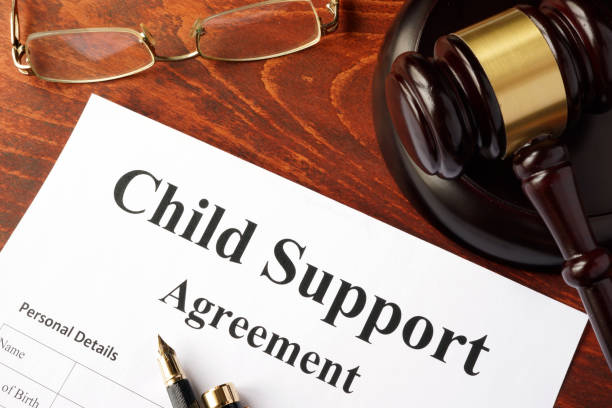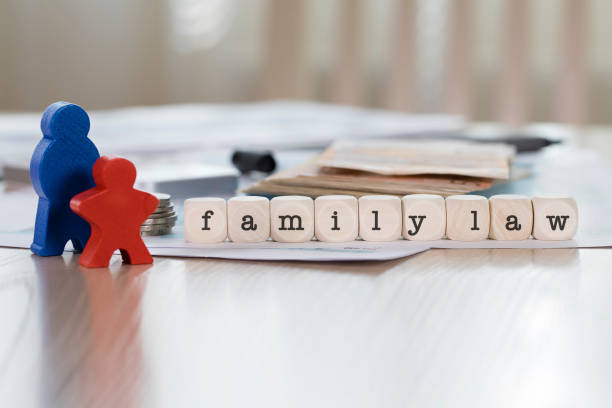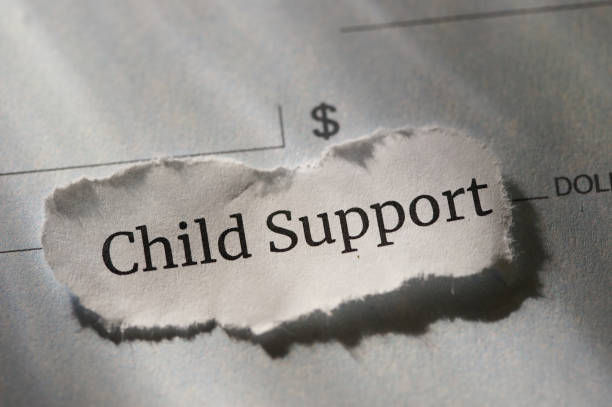What does child support cover NSW? Simply, child support is monetary aid to help raise a child. These expenses will generally include food, shelter, transportation, clothing, and school fees. Children need their families and parents as they will influence their life. Moreover, children will naturally rely on their parents and family members to protect them and provide for their needs.
Parents are a child’s first teachers and role models for how to act and interact as they grow older. To raise children properly after a divorce or separation, child maintenance payments are necessary. They ensure some level of stability in the child’s life following the breakdown of their parent’s relationship. Therefore, child maintenance payments, whether paid or received, are a major concern for people going through a separation or divorce.
In Australia, both parents are expected to financially support their children following a separation or divorce. But a question that may come up between separated and divorced parents is ‘what does child support cover in NSW?’. Read this article to know what is included in child support payments and other relevant information.
Things to Know About Child Support
Child support can be a puzzling and complicated concept for all parties involved. Because state laws differ and if one parent lives in a different state, it’s always best to consult a family lawyer. These legal professionals can explain and guide parents through the process of filing for, and paying child support.
Parents should also know a few things about child support. Firstly, custodial parents have legal custody of a child most of the time. Meanwhile, non-custodial parents are the people who don’t have physical custody of a child, though they may still have legal custody. Legal custody entails making decisions about the child’s life, whereas physical custody entails caring for the child on a daily basis.

Common Misconceptions
While fathers are typically associated with being non-custodial parents, this is not always the case. Many mothers are also required to pay child support. Similarly, non-custodial parents may continue to heavily involve themselves in their child’s life, and parents may choose to co-parent. It’s also important to remember that child support is not based on the parents’ marital status.
Whatever the circumstances, the goal of child support is for the parents to share the financial responsibility for raising their children. This typically entails the non-custodial parent making regular payments to assist in meeting the child’s basic needs. Continue reading to know more about what child support includes in NSW.
Read: Mother Vs Father Custody Statistics Australia
What Child Support Covers In NSW?
Child support payments are used for the care of children and are not used for the custodial parent’s personal expenses. This is where things can get complicated and conflicts can arise. In general, child support is intended to maintain a child’s living standard and meet all of their basic needs. The funds can be used to purchase necessities such as:
1. Basic Necessities
When talking about a child’s basic necessities, we can include their food, clothing, and shelter. Basic necessities are simply things that a child needs in order to function properly. Parents will need to provide nutritious food that will keep their children active and healthy.
They should also make sure they provide proper clothing that keeps them safe from cold and hot seasons. Let’s also not forget that parents need to provide their children with a comfortable place to live in without hazards and risks. So, what does child support include in NSW in terms of basic necessities? These are:
- Food
- Shelter and rent
- Clothing
- Lighting
- Telephone and utility bills for the house
What does child support include in NSW in terms of other basic necessities? In some cases, parents will also need to fund their child’s entertainment fees like computers, television programs, games, internet, and visits to movie theatres, parks, camping trips, or amusement parks.
2. Medical Expenses and Uninsured Medical Expenses
Most states require divorced or separated parents to help with medical bills. The parent with better employee-covered benefits is usually required to carry the medical, dental, and/or optical insurance plan. Child support payments can possibly cover uninsured or “extraordinary” medical costs. This includes any out-of-pocket medical costs that exceed the cost of a basic health care insurance plan, such as:
- Co-pays
- Deductibles
- Surgery
- Dental braces
- Casts
- Eyeglasses
- Special health care costs
3. School Fees
All children should have the right to receive proper education from schools and education-related institutions. Education is not free even in public schools. So, what does child support cover in NSW in terms of school-related expenses? These are:
- School clothes/uniforms
- Tuition or school fees
- Textbooks
- School supplies (notebooks and writing materials, school bags)
- Lunch money
- Private tutors
- Travel expenses
- Extracurricular activities
Notably whether school fees is include depends on some factors like whether the child attends a public or private school, as private school fees may or may not be included depending on special circumstances. Watch the video at the end of the article to know more.
4. Childcare
What does child support cover in NSW for childcare? Child support may cover the costs of childcare expenses such as daycare services, babysitters, nannies, or other childcare costs and fees. This is the case if one or both parents are unable to care for their child due to time constraints with work. Parents may also spend money for childcare during summer vacations, spring breaks, and holidays.
Who Can Help With Payments?
Some parents may have trouble keeping up with child support payments due to personal or financial reasons. Earlier, the child support agency followed a formula to calculate child support payable. Presently, Services Australia (previously known as Department of Human Services) an Australian agency, helps parents manage child support payments. Moreover like the child support agency, this institution also helps with child support assessment in order to know how much parents need to pay or receive. The Department of Human Services or Services Australia typically conduct a child support assessment with the following factors:
- Each parent’s income and combined income
- Time spent with childcare
- The child’s age
Previously the child support agency conducted these assessments, but now Services Australia has that responsibility.

Child Support Covers Expenses in NSW: Adult Child Maintenance
Child support typically stops when a child turns 18. However, there are instances where a child will need financial support even after 18. If this is the case, parents, legal guardians, or the child can apply for these orders in court. Adult children need this kind of financial support if they are:
- Experiencing serious mental or physical disabilities
- Finishing their secondary or tertiary studies
- Experiencing serious illnesses
If both parents agree to maintenance, or if the child and paying parent agree, the courts can turn this into an adult child maintenance court order. Either parent or child may seek an adult child support order from the other parent when a child is 17 or after the child has turned 18.
The Importance of Seeking Legal Advice
Some parents will face disputes and will have arguments about child support or adult child payments. They may also have disagreements on who must pay child support. This may continue to escalate until they decide to opt for court proceedings.
Hence, they should seek legal advice from JB Solicitors in order to work out child support payments or child support assessment. Our family lawyers are experienced in reviewing child support payments and helping parents agree on an amicable payment method. We have mediation services for disputed parents who want to make agreements about such payments.
Message an experienced family lawyer today.
